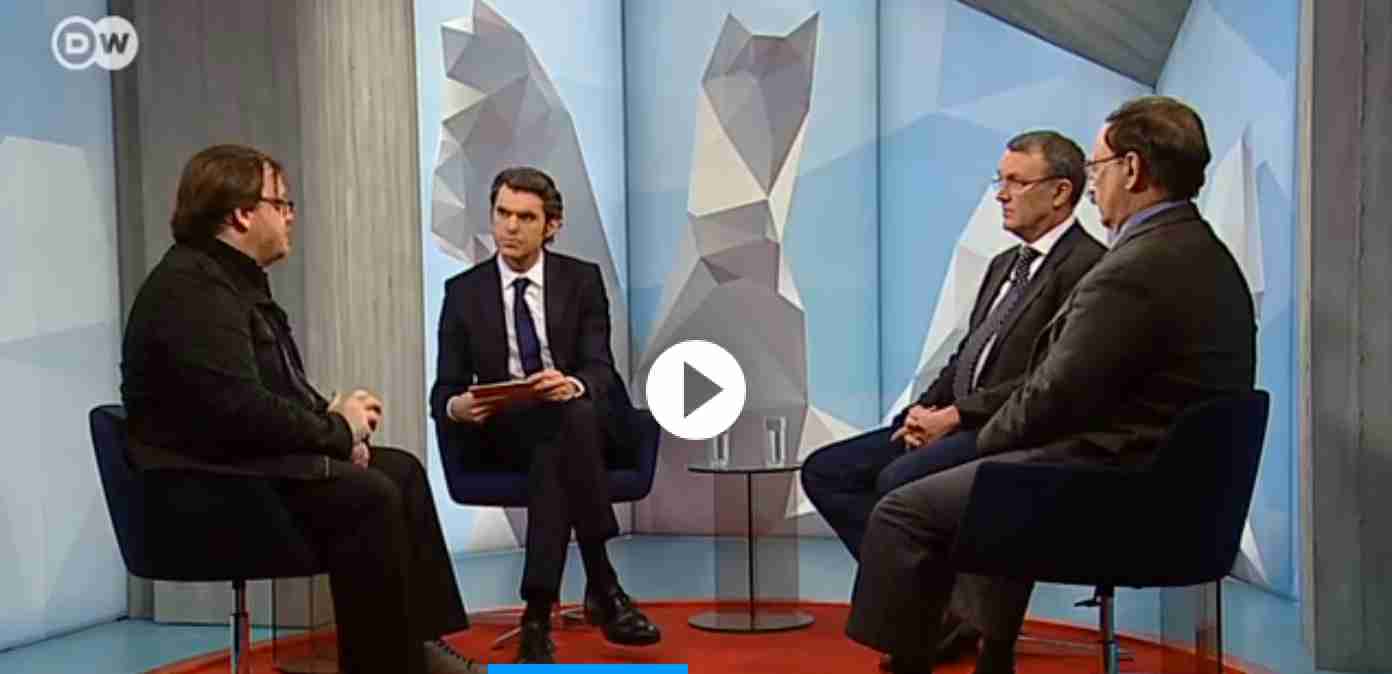Ten Years ago, the United States and its "Coalition of the Willing" invaded Iraq while justifying such an act on shifting, conflicting, and false pretenses of combating terrorism, containing weapons of mass destruction (WMD), and democracy promotion. Subsequent to that invasion, the United States proceeded to occupy Iraq and disastrously reconfigure its political structures, economic organization, and social fabric. Of note is that such a history of destruction did not begin in 2013, but was preceded by the 1991 Gulf War and the twelve years of brutal sanctions that followed that first war. While the US occupation has de jur ended, the Iraqi people are left to struggle with the devastating legacies and realities bequeathed to them by US invasion and occupation, its international conspirators, and its local collaborators.
On 15 March, Jadaliyya Co-Editor Sinan Antoon appeared on the Quadriga show of Germany`s Deutsche Welle (DW). The show also featured Robert Reid, the Associated Press (AP) Cheif of Bureau for Germany, Austria, and Switzerland, and Michael Ludres, a Berlin-based political advisor.
The discussion during the forty-five minute show is instructive of how despite the disaster that befell the Iraqi people as a result of the US-led campaign to bomb, sanction, invade, occupy, and plunder Iraq, there are those that continue to search for something positive about this legacy, or that attempt to speak as if Iraqi history began in 2003 (and that such a history is one of small policy mistakes rather than a longer-term structural and institutional overhaul that has produced that Iraq of 2013). Within the context of such persistent dominant narratives, both in the United States and elsewhere, some highlights of Jadaliyya Co-Editor Sinan Antoon`s interjections include:
- It is astonishing that even after ten years, mainstream media and analysts are still looking for any positive effects of the invasion and occuopation of Iraq.
- It is very clear, and has been for some time, that the war on/in Iraq was a disaster on all levels. This is not just for US tax-payers, but most importantly for the Iraqi people.
- It is probelmatic to still discuss the removal of Saddam Hussein as if that was the actual goal of the invasion/occupation.
- Current disucssions on Iraq make little mention of the fact that the entire Iraqi stat was dismantled. This state did not equal Saddam Hussein, as it was ninety-five years of institution building and assoicated dynamics. Nothing was done to replace this dismanteled state.
- The invasion/occupation of Iraq and the subsequent political configurations facilitated the biggest heist in modern history. Billions of dollars of Iraq`s national wealth have gone missing, and there has been no accountability and transparency about this issue.
- Instead of looking for any positive aspects of the war in Iraq, the discussion needs to be centered on how was it that entire populations were led to believe that the invasion/occupation would be a successful endevour despite the strong critical voices prior to and and on the eve of the invasion that fortold of these problems.
- There is not one positive outcome that can be pointed to regarding the invasion/occupation of Iraq. There are over 100,000 dead. There have been over 12,000 suicide bombings since 2010, a phenomenon that did not exist prior to the invasion/occupation. Basic services such as electricity are yet to be fully restored, despite that the fact that it took Hussein only two months to restore them after the 1991 bombing campaigns.
- The problems in today`s Iraq are of a fundamental nature. The entire political infrastructure is corrupt. The constitution has to be rewritten. There needs to be a new national conversation on how to move forward. The politicla system in place is disfunctional, producing only corruption and violence. The wealth of Iraq is not reaching a majority of the Iraqi people.
- There is a need to go back to the period prior to 2003, to consider the impact of the most severe sanctions regime in modern history. This sanctions regime killed over one million Iraqis and displaced over three million others. Also need to look at the 1991 Gulf War, wherein one US general was quoted as saying that the United states bombed Iraq "back to the pre-industrial age."
For more of Antoon`s analysis, click on the below image to watch the full interview.
